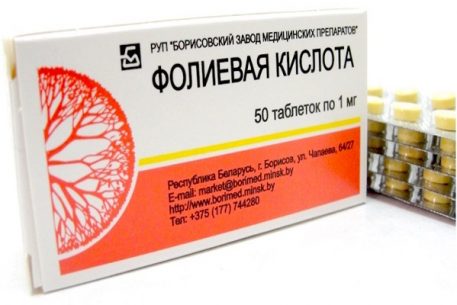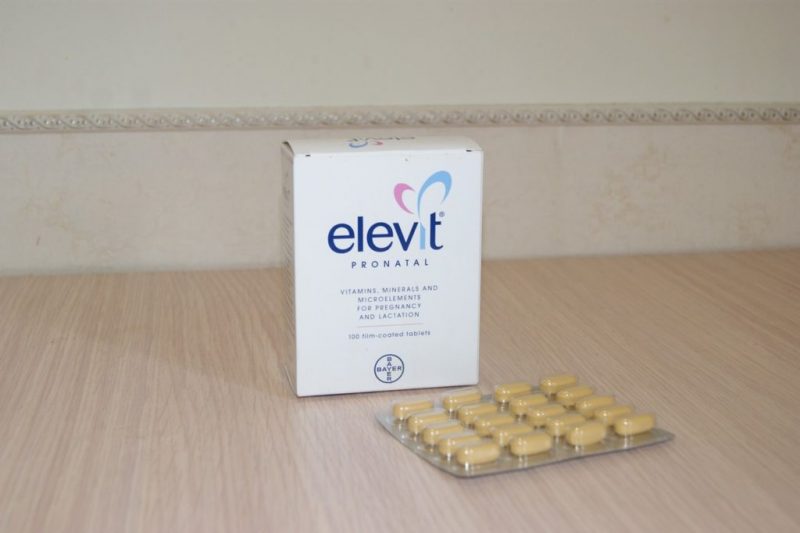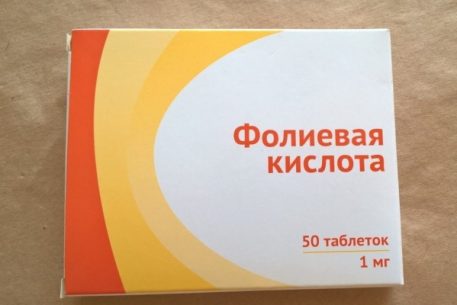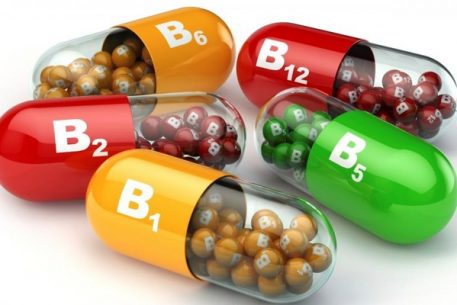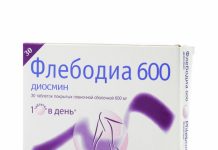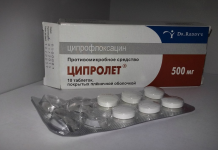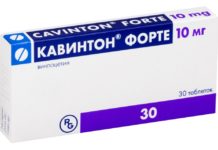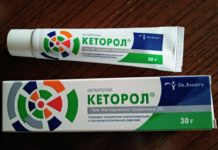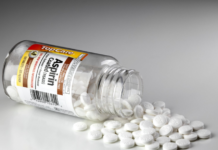Folic acid, folacin, or vitamin B9 is a compound that is produced by the human body, and it is also present in some foods. This enzyme was first written off at the beginning of the 20th century, and was originally called the Wils factor by the name of the scientist. Answers to questions: why is vitamin needed and how to take folic acid in the proposed material.
Material Content:
Why folic acid is needed for women and men
The synthesis of folacins in small doses is carried out by the large intestine. When interacting with cells, the enzyme is converted into a biologically active compound, which is necessary for the production of amino acids.
In addition, this element is involved in such processes:
- cell division;
- assimilation and processing of proteins;
- normalization of leukocyte and glucose levels;
- maintaining hemoglobin balance;
- red blood cell production;
- acid synthesis;
- restoration of the functions of the nervous system;
- support for cardiac activity and vascular function;
- improving digestion;
- stimulation of immunity;
- assimilation of vitamins and minerals;
- the formation of DNA and RNA responsible for hereditary traits.
Vitamin B9 is prescribed for adults and children with iron deficiency anemia and leukemia, disorders of the digestive tract, as well as a number of other disorders.In addition, taking folacin is considered a mandatory measure in the following situations:
- conception planning;
- early stages of pregnancy;
- endocrine disorders;
- epilepsy;
- signs of vitamin B deficiency
Since this substance is poorly absorbed by human cells and is produced by the body in small volumes, people suffering from its shortage need not only to supplement the diet with products containing vitamin B9, but also to drink medicines based on it in tablets or other dosage forms.
Daily requirement
The daily need for folacin differs in different categories of people. It depends not only on age, but also on the individual characteristics of the patient.
The volume of consumption for individual groups is as follows:
- children - from 1.5 to 3 mg;
- adults - 4 mg;
- pregnant women - 6 mg;
- to nursing mothers - 5 mg.
On a note. People involved in sports and practicing serious physical activity need more vitamin B9. In these cases, the dose is calculated individually.
Signs of Vitamin B9 Deficiency and Excess
With a lack of folic acid, the course of a number of important cellular processes is disrupted.
This condition declares itself with the following symptoms:
- violations in the digestive tract;
- anemia
- headaches;
- emotional distress;
- decreased performance;
- insomnia;
- decreased attention;
- a breakdown;
- sleep disturbances;
- weight loss
- dermatological problems.
Women with a deficiency of vitamin B9 notice deterioration in the condition of the skin, nail plates and hair, and premature gray hair often appears. And if there is a lack of folic acid during pregnancy, this negatively affects the well-being of the expectant mother and is expressed by such symptoms:
- powerlessness and dizziness;
- excruciating nausea and vomiting;
- stool disorders.
Folic acid will help children develop normally, and if this enzyme is not enough, a number of defects and disorders occur. When a child has appetite disorders, weakness, and apathy, often the reason is a lack of vitamin B9.
Did you know? Folates are consumed by the cells many times more when a person abuses alcohol, smokes, does not observe sleep patterns and is often in a state of stress. In addition, certain drugs may affect the level of this enzyme in the body.
Many patients have the question of whether an overdose of vitamin B9 is likely. The uniqueness of this substance lies in the fact that its excess is excreted from the body without harming it. However, the abuse of medicines containing folic acid threatens to cause such problems:
- bitterness and metallic aftertaste in the mouth;
- digestive disorders and abdominal cramps;
- nausea and vomiting
- increased gas formation;
- malfunctioning kidneys;
- irritability and insomnia;
- disturbances in the work of the heart;
- increased seizures in patients with epilepsy.
If, as a result of using products containing vitamin B9, these symptoms appear, at home you can take the following:
- Drink the victim with boiled water in a large volume.
- Provoke vomiting by pressing on the root of the tongue.
- After gastric lavage, give the patient activated charcoal or another sorbent.
When urgent measures are taken, you need to call the ambulance team.
What products contain
You can replenish cells with folic acid not only by taking the complexes containing it, but also by enriching the diet with individual varieties of herbs and vegetable crops, namely:
- any kind of cabbage;
- spinach
- parsley and nettle;
- mint leaves;
- salads;
- beetroot;
- carrots;
- tomatoes.
The folacin contains a considerable amount of such fruits:
- citruses;
- bananas
- apricots of all sorts.
In animal products, folate is slightly less, but still enough for the cells to receive them in the right amount.
The sources of this element include:
- liver;
- egg yolks;
- meat and poultry;
- fish and seafood;
- dairy products.
Other products that help eliminate the lack of folate in the body include:
- legumes;
- cereals;
- nuts
- wholemeal flour;
- yeast.
If you properly organize the diet and do not abuse harmful products, alcohol and cigarettes, the problem of folacin deficiency in the body will not arise.
Drugs That Contain Folacin
Since vitamin B9 in its natural form, obtained by the body from food, is poorly absorbed by the cells, it is often necessary to use preparations containing this substance.
They are presented in the following forms:
- powders;
- pills;
- dragee;
- drops;
- solutions for injection.
The following drugs are considered the most popular medicines intended to replenish cells with folate:
- Apo-folic;
- Folacin;
- Folio.
When planning pregnancy and in its first months, it is recommended to take the following funds:
- Pregnant for pregnancy;
- Multi-Tabs Perinatal;
- Elevit.
On a note. At the stage of preparation for conception, folic acid is indicated for both partners.
How to take vitamin B9 medications when planning pregnancy
Folacin will help maintain hemoglobin balance in the blood, which reduces the likelihood of a miscarriage. And also this enzyme is responsible for the formation of the fetus, and is especially needed during the laying of organs. In addition, folates are required for DNA synthesis, and therefore, several months before conception, vitamin B9 is shown not only to the expectant mother, but also to her husband.
At the planning stage, women are prescribed 1-2.5 mg of the substance daily, for men - from 2-4 mg. At the same time, specialists rarely strictly follow the instructions for use, and prescribe individual schemes and dosages in each case.
It is permissible to increase the volume of vitamin B9 before conception when the patient:
- is depressed or in a state of chronic stress;
- actively involved in sports;
- subject to excessive physical exertion;
- experiencing problems with the digestive tract.
And also the recommended dosage is increased if the woman drank contraceptive drugs for a long time. For men, an increased volume of folic acid is prescribed for unsatisfactory spermogram results.
Interaction with other substances
There are a number of medicines whose active components can affect the balance of folic acid and accelerate its excretion.
These include drugs of the following groups:
- bacteriostatic antibiotics;
- antiprotozoal agents;
- antacids;
- corticosteroids;
- oral contraceptives;
- anticonvulsant drugs.
And also on the deterioration of the absorption of vitamin B9 affect drugs containing such compounds:
- sulfonamides;
- polymyxins;
- chloramphenicol;
- tetracyclines;
- phenytoins;
- ethanol.
If the patient needs to take medicines of these groups or medicinal formulations containing the listed components, calcium folinate is prescribed instead of folic acid.
Contraindications and side effects
Taking folacin-based medicinal formulations will cause significant damage to health in the following conditions:
- the presence of neoplasms of a benign or malignant nature;
- violation of the digestibility of B vitamins;
- low levels of cobalamin (vitamin B12);
- metabolic disorders;
- excess iron-containing components;
- intolerance to the components of the drug.
As a rule, folic acid-based medications do not cause side effects, since this substance is not foreign to the human body. But the composition of medicines often includes synthetically developed vitamin B9, which can lead to allergic reactions or such an unpleasant manifestation:
- flatulence;
- pain and pain in the stomach;
- nausea and vomiting;
- stool disorders;
- malfunctioning of the respiratory organs (very rare).
An overdose of drugs containing folates is also accompanied by the same symptoms. If the condition worsens as a result of using a vitamin B9 product, you must stop taking it and seek medical help. You may need to adjust the schedule or dosage.
Like any trace element, folic acid is beneficial if there is no shortage or excess. Otherwise, it threatens to malfunction the body, which can lead to serious violations.



